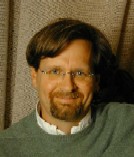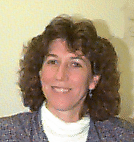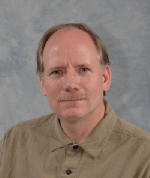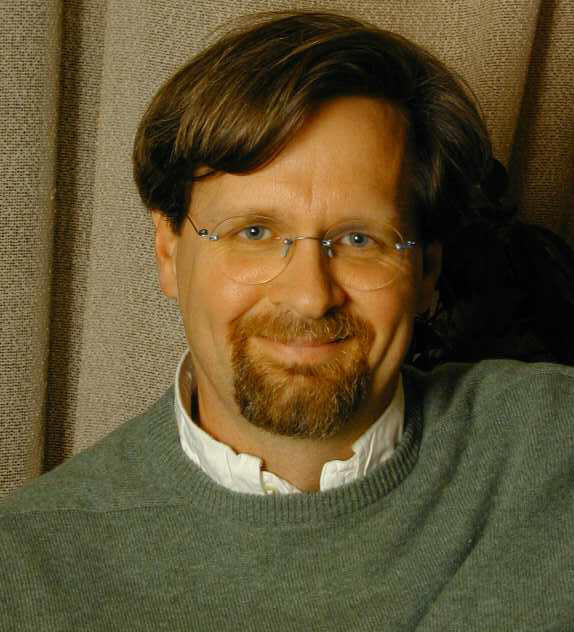Schedule
NEW Registration
and payment form
Announcements
|
February 19 |
|
Schedule is
changed slightly. See the details in the announcements
there. |
|
February 17 |
|
Please look at the
CFP for International Journal of
Translation and contact me at the conference if you are interested. |
|
February 16 |
|
The topic of the keynote talk by Kathy
McKeown will be: Text Summarization: News and Beyond
(corrected in the schedule). |
|
February 14 |
|
Registration
page is ready at last! Please URGENTLY fill in your
information. We appreciate if you fill it in even if you have previously
sent it to us by email. In addition, you can pay your registration
fee via this page (preferably), or you can pay on site if you wish,
with a credit card (Visa or MasterCard) or cash. Also, please book your
room in the hotel via this page. (If you have booked it earlier
via email. please repeat this information via the page just in case;
however, if you don't, nothing bad happens: we hopefully have your
info.) |
|
February 14 |
|
In addition to Blackwell (see
below), during the conference there will be free
full-text access for the participants to a subset of journals of
Springer
editorial house,
www.springerlink.com
(from the internal network of the Institute). |
|
February 14 |
|
Schedule
is updated: specific times are added, some talks moved, general view and
transportation schedule added. |
|
February 13 |
|
During the conference there will be free
full-text access for the participants to all journals of Blackwell
editorial house,
www.blackwell-synergy.com (from the internal network of the
Institute). |
|
February 12 |
|
Hotel: To simplify things, we've passed
to the hotel the list of all authors (see here).
When you tell them you come to CICLing and your name is on this list,
you will have a discounted
discounted price and one of the 70
rooms reserved for the conf. If you are not on this list, please contact
us. |
|
February 6 |
|
Banquet is added on Friday evening.
We may have to make small changes to the schedule
to free up the time for it. |
|
February 6 |
|
The Springer
LNCS Proceedings (oral talks) have arrived. The book is: LNCS volume 4394, ISSN 0302-9734, ISBN-10:
3-540-70938-X, ISBN-13: 978 3-540-70938-1. The final table of contents
is here (large files -- scanned images of the book!): page
1, 2,
3, 4,
5, 6. |
|
February 6 |
|
Hotel: The price confirmed by
the hotel El Ejecutivo (the same hotel as planned originally) is
here. A list of all specific requests we have
received so far is here; we will
confirm the details of each specific request by email. For those not on
the list: We have booked a number of rooms enough for all participants. We will contact you soon
to ask for the details, but in any case, there are enough rooms
for all. Please do not book your room directly with the hotel if
you want to pay the discounted price. |
|
January 29 |
|
Registration:
we are still working on a web system that will allow you to pay with a
credit card and fill in some information, such as reserve your seats in
the excursion buses. We will contact you when ready. Authors and persons
who contacted us in time will pay the early fee. |
|
January 29 |
|
Posters:
The format and camera-ready deadline are not yet defined. We are working
on this, and will contact you when ready. Please have your paper ready
meanwhile. |
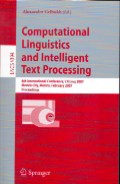
CICLing-2007
Eighth International Conference on Intelligent Text Processing and
Computational Linguistics
February 18 to 24, 2007,
Mexico City, Mexico
Publication:
Springer
Lecture Notes in Computer Science (indexed by ISI SCIe / JCR);
poster session: journal Research in Computing
Science (indexed by Latindex).
Submission deadline:
passed
(contact organizers in need of a late submission)
Keynote speakers:
Gregory Grefenstette,
Kathleen McKeown,
Raymond Mooney; more to be announced.
Excursions: Ancient pyramids, Monarch butterflies, great cave, and more.
Awards: Best Paper award, Best Presentation award, Best Poster award.
Endorsement by the
Association for
Computational Linguistics (ACL)
applied for
Call For Papers
|
Science
|
History
|
Nature
|
Culture
|
|
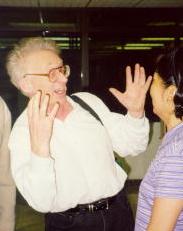
|
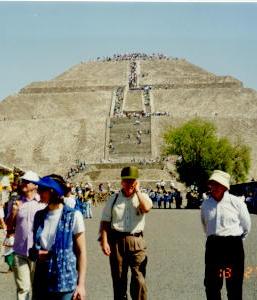
|
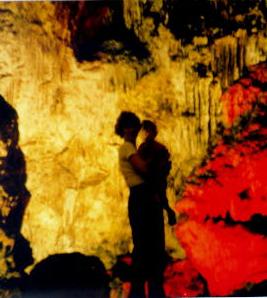
|
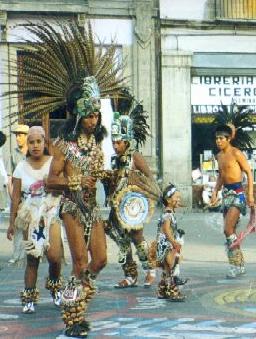
|
|
Igor Mel’cuk explains to Sofia the HUGE success of the Meaning-Text
Theory.
|
70 m. tall, 2000 years old Pyramid of the Sun. I. Bolshakov and I. Mel’cuk.
|
In the cave, the underground kingdom. Mrs. Gelbukh with her son Boris.
|
In the streets of Mexico City. Dance of Aztec warriors. Photo by Karine.
|
|
Please distribute! Plain text version of CFP, Poster
|
This conference is the eighth CICLing event. The past
CICLing conferences
have been very successful, according to the comments of the participants: Fantastic conference! (Martin Kay,
2004), Everything
was just great! Super-hyper-ultra-well done! (Igor Mel'cuk, 2000). We consider the following factors to define our identity:
 Excellent
keynote speakers. We invite the most prominent scientists of the
field to give keynote talks which, unlike at many other confs, are published
in extenso in the Proceedings. They also organize an additional tutorial or
discussion, and usually even participate in the excursions, where you can speak
with them in an informal environment. [Past
participants' opinions]
Excellent
keynote speakers. We invite the most prominent scientists of the
field to give keynote talks which, unlike at many other confs, are published
in extenso in the Proceedings. They also organize an additional tutorial or
discussion, and usually even participate in the excursions, where you can speak
with them in an informal environment. [Past
participants' opinions]
 General interest.
The conf covers nearly all topics related to computational linguistics. This
makes it attractive for people from different areas and leads to vivid and
interesting discussions and exchange of opinions.
General interest.
The conf covers nearly all topics related to computational linguistics. This
makes it attractive for people from different areas and leads to vivid and
interesting discussions and exchange of opinions.
 Informal interaction. It is intended for a
rather small group of
professionals. This allows for informal and friendly
atmosphere, more resembling a friendly party than an official event. At CICLing
you can pass hours speaking with your favorite famous scientists who you
scarcely could greet in the crowd at large conferences.
Informal interaction. It is intended for a
rather small group of
professionals. This allows for informal and friendly
atmosphere, more resembling a friendly party than an official event. At CICLing
you can pass hours speaking with your favorite famous scientists who you
scarcely could greet in the crowd at large conferences.
 Excellent excursions. Mexico is a
wonderful country rich in culture, history, and nature. The conference is
intended for people feeling themselves young in their souls, adventurous
explorers in both science and life. Our cultural program brings the
participants to unique marvels of history and nature hidden from the ordinary
tourists.
Excellent excursions. Mexico is a
wonderful country rich in culture, history, and nature. The conference is
intended for people feeling themselves young in their souls, adventurous
explorers in both science and life. Our cultural program brings the
participants to unique marvels of history and nature hidden from the ordinary
tourists.
 Relief from frosts. In the middle of February frosts, the
participants from Northern countries can enjoy bright warm sun under the
shadow of palms.
Relief from frosts. In the middle of February frosts, the
participants from Northern countries can enjoy bright warm sun under the
shadow of palms.
The conf is organized by the Center for Computer Research (CIC) of the National Polytechnic Institute (IPN), Mexico. The
IPN is one of the largest universities in the world, with over 120,000
students. The CIC is a relatively new school devoted to the cutting edge
research in all areas of science related to computers, both in software and
hardware. The conf is organized by the Natural Language
Processing laboratory of CIC (you can find some our publications at www.Gelbukh.com).

In general, we are interested in
whatever helps, will help eventually, or might help computers
meaningfully process language data.
The conference is intended to
the exchange of opinions between the scientists working in different areas of
the growing field of computational linguistics and intelligent text processing.
Our idea is to get a general view of the state of art in computational linguistics
and its applications.
Areas of interest include, but
are not limited to, the following topics, as long as the topic is presented in computer-related
or formal description aspects:
Computational linguistics research:
 Computational
linguistic theories and formalisms
Computational
linguistic theories and formalisms
 Representation of
linguistic knowledge
Representation of
linguistic knowledge
 Morphology
Morphology
 Syntax
Syntax
 Semantics
Semantics
 Discourse models
Discourse models
 Ambiguity
resolution
Ambiguity
resolution
 Word Sense
Disambiguation
Word Sense
Disambiguation
 Anaphora
resolution
Anaphora
resolution
 Text generation
Text generation
 Machine translation
Machine translation
 Statistical
methods in computational linguistics
Statistical
methods in computational linguistics
 Lexical resources
Lexical resources
Intelligent text processing and applications:
 Document
classification and search
Document
classification and search
 Information
retrieval
Information
retrieval
 Information
extraction
Information
extraction
 Text mining
Text mining
 Automatic
summarization
Automatic
summarization
 Spell checking
Spell checking
 Natural language
interfaces
Natural language
interfaces
Naturally, we welcome the works on
processing any language, not necessarily English, though major
languages are of more general interest. Note: when describing phenomena of
languages other than English, please be sure to make your discussion
understandable for people not familiar with this language.
You
can have a look at the past
CICLing-2006,
2005,
2004,
2003, 2002, 2001, 2000 tables of contents to get an
idea of our interests. If you are not sure whether your particular topic is of
interest, please do not hesitate to
ask us.

more to be announced
Traditionally, our keynote speakers give a formal talk, which is also published
in extenso in the Proceedings, and also organize a "special
event" (a discussion, tutorial, experiment, or something just interesting).
Such events, as well as publication of the keynote talks in the Proceedings, are
distinguishing features of CICLing.
[Past participants'
opinions]

|
Deadline for registration of abstracts
|
Now!
|
|
Deadline for uploading of full text of registered papers
|
October 6
|
|
(contact
the organizers for late submission) |
|
|
Notification of acceptance
|
November 19
|
|
Camera-ready & early registration (see
here) deadline
|
December 8
|
|
Conference
|
February 18 to 24
|
We cannot guarantee processing of any paper that does not arrive by the
corresponding deadline. However, you may contact us if you really cannot submit
your paper in time, and we will see what can be done.

Authors of accepted papers: By submitting a paper, at least one author thereby promises, in case of acceptance of the paper, to
attend the conf in person to present the paper and to pay the corresponding
registration fee.
We expect to provide a way to pay by credit card via
Internet. The payment instructions will
be announced here later.
Registration fee:
|
|
Professionals
|
Students
|
Local students
|
|
Early
|
US$ 340
|
US$ 270
|
free entrance |
|
On site
|
US$ 390
|
US$ 320
|
On reduced registration
fee: A very limited number of reduced
registrations may be available. To apply, please
contact us and
thoroughly justify your application. Eligible for reduced registration can be people from underdeveloped countries
in case if their institutions have real difficulties paying the full fee
(included: Latin America, Eastern Europe; not included: North America,
Western Europe, Japan, South Korea). Authors must apply for reduced registration
(clearly indicating the discount amount) before submission
of their paper. No new applications will be considered for already
reviewed papers. Notes: (1) Though all papers are judged by strictly academic
criteria, (only) for borderline cases and (only) between papers of comparable quality we
may give preference to papers with fully paid fee. (2) Though we will do our best for
this not to happen, we cannot guarantee providing the conf material (including
the Proceedings) and the conf lunch tickets to participants with reduced fee.
Also, in case of lack of seats in the excursion bus we will give preference to
fully registered participants.

See a link to the submission web system at the
end of this section. However, please read first the format guidelines.
Publication
All accepted
papers will be published in a Proceedings volume edited by Springer-Verlag in its Lecture Notes in Computer Science
series.
The papers should not exceed
12 pages. A
small additional fee will be charged for additional pages exceeding this
limit. Please contact us if you exceed the limit by more than 2 pages. The
additional fee is charged for the pages exceeding the page limit in either the
version submitted for review or in the camera-ready version, whichever is
greater. This means that you should not shorten the camera-ready version in
comparison with the version submitted for review, unless the reviewer required
this; in any case such shortening would not reduce the additional fee.
Note: Traditionally, there has been the modality
of short papers. Since this year, according to the instructions that we
received from our publisher, Springer, we only offer the modality of full
papers. We apologize for inconvenience. Poster session
papers will be published in another journal.
Format
Please provide your paper in the form in which it
should appear in the book (but without page numbers, running heads, and
copyright note). However, since the review process is
double blind, please do not indicate the
author names or any information that may disclose the authors' identity
(obviously, in the camera-ready version you should indicate the names).
Please strictly
follow the format
guidelines of Springer LNSC series (you can get the style files
here). We cannot guarantee publication of any
paper that does not follow these guidelines. Please do not hesitate to
ask any questions.
The following are frequent
formatting problems:
1.
Word
users: Do
not underline
email addresses or URLs, and do not write them in blue font. See also below the
notes on bugs in the Word template.
2. All figures, tables, formulas, etc. must be within margins. We will
not be able to include papers that do not meet this requirement.
3. All pages must be free of page numbers and running
heads.
4. Please do not leave unused space on the pages. Try
moving your figures if they cause unused space. Avoid if possible the last page
being filled less than to 1/3.
5. No section title should be the last line on the page.
Avoid widow and
orphan lines.
6.
All section titles must be
First Letter Capitalized.
7.
Figure captions must be
below
the figure; table captions must be
above
the table (especially important for TeX users). Both figures and tables
should be centered.
8.
Do not use colors in figures: they will not be visible in paper
book. Especially in Excel drawings, a blue and a red line will look the same, and a
yellow line will not be visible at all. In Excel drawings, eliminate the outer
frame and make the background white (not grey), see below.
9. For homogenous look of the book, please format the
tables,
whenever it does not cause difficulties in understanding the table, with only
three thin horizontal lines:
|
Incorrect: |
| |
|
|
|
|
|
| |
Collection |
R |
P |
F |
|
| |
Reuters |
0.6 |
0.8 |
0.7 |
|
| |
CACM |
0.7 |
0.7 |
0.7 |
|
| |
BNC |
0.8 |
0.6 |
0.7 |
|
| |
Penn |
0.9 |
0.5 |
0.8 |
|
| |
|
|
|
|
|
|
|
|
|
|
| |
|
|
|
|
|
|
Correct: |
| |
|
|
|
|
|
| |
Collection |
R |
P |
F |
|
| |
Reuters |
0.6 |
0.8 |
0.7 |
|
| |
CACM |
0.7 |
0.7 |
0.7 |
|
| |
BNC |
0.8 |
0.6 |
0.7 |
|
| |
Penn |
0.9 |
0.5 |
0.8 |
|
| |
|
|
|
|
|
|
|
|
or |
| |
|
|
|
|
|
|
|
|
|
|
|
|
| |
|
|
|
|
|
|
/// |
|
|
|
|
|
| |
|
|||| |
|
|
|
|||| |
\\\ |
|
::: |
|
|
|
| |
::: |
|||| |
/// |
|
::: |
|||| |
/// |
|
::: |
|||| |
|
|
| |
::: |
|||| |
\\\ |
|
::: |
|||| |
\\\ |
|
::: |
|||| |
|
|
|
|
::: |
|||| |
/// |
|
::: |
|||| |
/// |
|
::: |
|||| |
/// |
|
| |
|
|
|
|
|
|
|
|
|
|
|
|
|
9. If the title of your paper does not fit in one line, please divide
it into logical parts (with Shift-Enter in Word, or \\ in TeX):
|
Incorrect:
|
A Method of Calculation of Semantic Word
Distance
|
|
|
|
|
Correct:
|
A Method of Calculation
of Semantic Word Distance
|
Note for Word users: the template file sv-lncs.dot
currently provided by Springer has the following bugs that you must correct in
the text of your paper (if they affect you) in order for it to be published:
1. All centered paragraphs (title, author, address, email,
equation, etc.) and some other special paragraphs (table and figure captions)
incorrectly have 0.4cm first line indentation, set it to 0 (not indented).
This can be done through the menu by changing Format | Paragraph | Indenting
| Special to none
or (for expert users) by modifying the corresponding style.
2. Bulleted lists seem to have a problem with the
bullet character. You can choose another bullet character through the menu Format
| Numbering and lists | Bulleted lists | Personalize or
(only for expert users!) by modifying the corresponding style.
3. Table captions should be centered; this can be changed through the
menu by setting Format | Paragraph | Alignment to centered.
Also, table caption style has German language, you might want to set it to
English through Tools | Language | Define Language.
Submission procedure
We accept only electronic
submissions, which should be properly formatted.
See a note on reduced registration fee. All papers
are to be registered and uploaded through the
submission page.
Submission is done in two steps. Before the
abstract registration deadline, you should register your paper. You only
need a tentative abstract at this stage (the real abstract can be improved
later). Then, before the full text uploading deadline, you should upload
a PDF file with the complete and finished paper. Only the papers for which the
abstract has been registered in time can be uploaded at this point. No new
papers can be registered after the paper registration deadline has been expired.
Contact
See email options, fax, and the street address on
www.CICLing.org/contact.html.

Poster session
The papers accepted for the poster/demo session will be
published a special issue of the
journal Research in Computing Science, ISSN 1870-4069. The size of the
papers is the same as for the oral session, see
here. The modality of short papers will not be available.
If you want your paper to be considered for the journal
Research in Computing Science in case if it is not accepted for the
Springer LNCS volume, please tick the corresponding [X] checkbox when
registering your paper.
For posters, you will be given approximately 2 square meters
of vertical surface to attach your material. If you have some special
requirements, please let
us know. Please put your photo in a visible place on your poster (or
main page of your demo) for people to easier locate you while you are looking at
others' posters and demos. The following common-sense advice improves your presentation:
For a poster
 Arrange individual pages vertically, in columns,
from top to bottom. Horizontal arrangement of pages makes the readers to zigzag
when reading your material. Please number pages clearly to
indicate the direction of reading.
Arrange individual pages vertically, in columns,
from top to bottom. Horizontal arrangement of pages makes the readers to zigzag
when reading your material. Please number pages clearly to
indicate the direction of reading.
 Use large font, at least 20 pt, and much larger for
headings. Note that you probably will explain your poster to several or many
people at the same time.
Use large font, at least 20 pt, and much larger for
headings. Note that you probably will explain your poster to several or many
people at the same time.
 Have detailed and additional material
handy, though do not attach it together with your main material. It is a good
idea to prepare some sufficient number of handouts.
Have detailed and additional material
handy, though do not attach it together with your main material. It is a good
idea to prepare some sufficient number of handouts.
For a demo
 Have a working program, not a PowerPoint
presentation (which should constitute your poster instead).
Have a working program, not a PowerPoint
presentation (which should constitute your poster instead).
 Prepare some plan of your demonstration, including
some examples tested in advance.
Prepare some plan of your demonstration, including
some examples tested in advance.
 Prepare all necessary input files in advance, even
if
small. On the other hand, give the users a chance to test their own
examples and play with your program’s options.
Prepare all necessary input files in advance, even
if
small. On the other hand, give the users a chance to test their own
examples and play with your program’s options.
 If possible, have handy some floppies or
CDs with
your program and documentation to give out to attendees.
Clearly indicate your name, email on these disks. Indicate a
webpage where more info can be found.
If possible, have handy some floppies or
CDs with
your program and documentation to give out to attendees.
Clearly indicate your name, email on these disks. Indicate a
webpage where more info can be found.
Presentation: All posters and demos will be presented during the Poster/Demo session
(combined with the Welcome party) on the first working day
of the conference. Later, they can also be demonstrated during breaks to
interested attendees.
Demos
During the poster/demo
session and breaks, all participants will have a chance to demonstrate the
material related to their talks or posters. However, the number of PCs for
demonstration will be limited; please contact us in advance if you need
one. You are encouraged to bring your
laptop with your demo. Demo platforms provided by the
organizers: PC with Windows 2000/ME/XP (by our
choice, no guarantee of some specific version), CD and floppy drives; no
significant space on the disk is guaranteed. If you need a specific version of
Windows or some another OS or platform please
contact the Committee
in advance, as well as if you need some significant disk space, Internet
access, or any special hardware or software.

Tentative
general schedule
NEW: SCHEDULE.
See
submission deadlines in the section Important
Dates.
There
will be three and half working days and three and half days of excursions.
You can arrive on Monday and leave on Friday if you wish; you will lose two excursions.
The general schedule is as follows:
 Sunday, Wednesday, Saturday:
excursions.
Sunday, Wednesday, Saturday:
excursions.
 Monday morning, Tuesday,
Thursday: talks.
Monday morning, Tuesday,
Thursday: talks.
 Monday evening: welcome
party, posters, and demos.
Monday evening: welcome
party, posters, and demos.
Note for the
participants of past
CICLing events held in Mexico: we plan to repeat nearly the same excursions;
I apologize for inconvenience. I advise you two
options: either to stay just from Monday to Friday or to arrive earlier and
visit some very interesting places to which we cannot organize an excursion, for
example: Tula (2 hours by bus), El Tajin (7 hours); or: arrive to Cancun and
visit Chichen-Iza, Uxmal, Palenque, La Venta-Villahermosa traveling to Mexico
City (2 nights in bus, 3 days of sightseeing). There are many other good
options if you are adventurous enough and can rent a car or pass nights in the
buses. Please ask me
for more info.

The list of accepted papers and the program to be announced.

Excursions
One of the most exciting things
at the conference are excursions to the ancient Indian pyramids and visiting a
unique natural phenomenon, the Monarch Butterfly wintering site where you can
see millions of beautiful butterflies in the trees and in the air around you.
In common opinion of the participants of the previous events the excursions were
excellent; you can see their own photos: CICLing-2000, 2001, 2002,
2003,
2005,
2006, as well as Ted’s site.
Warning: the
excursion to the butterflies site is very long and tiresome,
especially for elder people. We really think it is very worth the trouble, but you
decide. Note that population of the butterflies changes from year to
year, so we cannot guarantee any particular number (or presence) of the
butterflies.
Note: Please bring with your (valid) Student / Professor / Teacher ID, and have
it with you at all excursions. This will help us to reduce our expenses, since
the entrance to some sites with such an ID is cheaper.
Here is the list of
excursions:
 Excursion to Teotihuacan:
ancient Indian pyramids, 1 hour drive,
much (but slow) walking.
Excursion to Teotihuacan:
ancient Indian pyramids, 1 hour drive,
much (but slow) walking.
 Excursion to Angangueo:
Monarch Butterfly wintering site, 4 hours
drive, hard walking up the hill.
Excursion to Angangueo:
Monarch Butterfly wintering site, 4 hours
drive, hard walking up the hill.
 Informal
short walk by the City
Center ("Zocalo").
Informal
short walk by the City
Center ("Zocalo").
 Excursion to the
Anthropological
Museum.
Excursion to the
Anthropological
Museum.
 Excursion to
Xochicalco ancient pyramids, Cacahuamilpa
cave and colonial city Taxco, 2+1+1
hours drive, much (but slow) walking.
Excursion to
Xochicalco ancient pyramids, Cacahuamilpa
cave and colonial city Taxco, 2+1+1
hours drive, much (but slow) walking.
Note for past CICLing
participants: I do understand that repeating
the same excursions is a bad idea. On the other hand, these are the best ones, and significantly changing the list would not be fair to the new
participants. If you have any specific idea on what you would like to visit,
please let us
know and we will try to arrange for this.
We are open to any ideas on what
other excursions would be interested. Please
let us know your ideas.
Welcome party
The reception party will be
combined with the Poster and Demo section. We will have some snack,
maybe some wine. (No music, no heavy food, even no tables, sorry. We
consider official banquets waste of your valuable time.) You will enjoy the
informal atmosphere to speak with each other and with the presenters of the
posters and demos. You will also have a chance to show and discuss your own
programs (for this, please let
us know your software and hardware requirements).

We suggest that it is convenient
for the participants to stay in the same hotel, to facilitate informal
interaction. Usually our participants form ad-hoc informal companies in the
hotel reception to go to some restaurant, walking tours, etc. We will do our
best to provide free transportation
from the recommended hotel to the conf place. Also, we have
discounted rates for the participants of the conference.
NEW The
official hotel of the conference is **** El Ejecutivo: it is
affordable, nice, and located in the central district. Address: Av. Viena # 8,
Colonia Juarez, Mexico DF, 06600. Tel. +52 (55) 5566-6422, 5566-6565, fax +52
(55) 5705-5476, booking +52 (55) 5535-5088. Here you also can
see a booklet with some info and a local map, and here
the other side of the booklet. See also our
local transportation guide.
NEW Rates (taxes included):
| |
CICLing-2007 |
General public |
|
Room |
Mexican
Pesos |
US
Dollars,
approx. |
Mexican
Pesos |
US
Dollars,
approx. |
| single |
600 |
55 |
800 |
74 |
| double |
645 |
59 |
855 |
79 |
|
triple |
730 |
67 |
975 |
90 |
|
quadruple |
765 |
70 |
1020 |
94 |
You do not need to reserve your
room; we will do it for you. Please send
us a message (at the hotel@ address) well in advance
indicating:
 your name,
your name,
 dates:
check-in day, check-out day,
dates:
check-in day, check-out day,
 type of the room (single, double, triple,
quadruple),
type of the room (single, double, triple,
quadruple),
 number of persons,
number of persons,
 whether you prefer to share the room with other
persons. In this case, what type of room (double or triple), and your gender. We
will try to find a roommate for you, for your whole stay or for a part of
your stay (while you will pay the whole price for the days for which we could
not find you a roommate). Note that there is no guarantee: your request for a
shared room does not guarantee that we will be able to fulfill it, and you will
pay the whole price for the days when you owned the whole room. If you prefer to
share a room with a specific person, please contact that person instead and send
us
one request for a double room (indicating two names), not two
separate requests, to avoid confusion.
whether you prefer to share the room with other
persons. In this case, what type of room (double or triple), and your gender. We
will try to find a roommate for you, for your whole stay or for a part of
your stay (while you will pay the whole price for the days for which we could
not find you a roommate). Note that there is no guarantee: your request for a
shared room does not guarantee that we will be able to fulfill it, and you will
pay the whole price for the days when you owned the whole room. If you prefer to
share a room with a specific person, please contact that person instead and send
us
one request for a double room (indicating two names), not two
separate requests, to avoid confusion.
 any other indications.
any other indications.

Local transportation guide and useful info
Here you can find the following information:
 How to get to the
recommended hotel,
How to get to the
recommended hotel,
 How to get to CIC,
the conf place,
How to get to CIC,
the conf place,
 Useful local information: currency
and credit cards, transportation, phones, food, museums, security.
Useful local information: currency
and credit cards, transportation, phones, food, museums, security.

Program Committee (All tentative)
-
Agirre, Eneko, Spain
-
Boitet, Christian, France
-
Bolshakov, Igor, Mexico
-
Calzolari, Nicoletta,
Italy
-
Carroll, John,
UK
-
Cristea, Dan, Romania
-
Di Eugenio, Barbara, Italy
-
Gelbukh, Alexander (chair), Mexico
-
Grefenstette, Gregory, France
-
van Guilder, Linda, USA
-
Hallett,
Catalina, UK
-
Harada, Yasunari, Japan
-
Hovy, Eduard, USA
-
Ide, Nancy, USA
-
Inkpen, Diana, Canada
-
Jelinek, Frederick, USA
-
Joshi, Aravind, USA
-
Kay,
Martin, USA
-
Kharrat, Alma, USA
-
Kilgarriff, Adam, UK
-
Kittredge, Richard,
USA / Canada
-
Knight, Kevin, USA
-
Koller, Alexander, Germany
-
Kondrak, Grzegorz, Canada
-
Kuebler, Sandra,
Germany
-
Litkowski, Ken, USA
-
Liu,
Hugo, USA
-
Lopez-Lopez, Aurelio,
Mexico
-
Magnini, Bernardo, Italy
-
Marcu, Daniel, USA
-
Martin-Vide, Carlos, Spain
|
-
Mel’cuk, Igor,
Canada
-
Mihalcea, Rada, USA/Romania
-
Mitkov, Ruslan, UK
-
Murata, Masaki,
Japan
-
Nastase, Vivi, Canada
-
Nevzorova,
Olga, Russia
-
Nicolov, Nicolas, USA
-
Nirenburg, Sergei,
USA
-
Orasan, Constantin, UK
-
Palomar, Manuel,
Spain
-
Pedersen, Ted, USA
-
Pekar, Viktor, UK
-
Piperidis, Stelios,
Greece
-
Pustejovsky, James, USA
-
Ren, Fuji, Japan
-
Rinaldi, Fabio, Switzerland
-
Rodriguez, Horacio, Spain
-
Rus,
Vasile, USA
-
Sag, Ivan, USA
-
Salvetti, Franco, Italy
-
Sharoff, Serge,
UK
-
Sidorov, Grigori, Mexico
-
Solorio, Thamar , USA
-
Strapparava, Carlo, Italy
-
Sun Maosong,
China
-
Tait, John, UK
-
T’sou Ka-yin, Benjamin,
Hong Kong
-
Verdejo, Felisa, Spain
-
Verspoor, Karin, USA / The Netherlands
-
Vilares Ferro, Manuel,
Spain
-
Wilks, Yorick,
UK
|
Best Paper Award Selection Working Group
(All tentative)
Organizing committee
(All tentative)
-
Calvo Castro, Hiram
-
Garcia Araoz, Ignacio
-
Gelbukh, Alexander (chair)
-
Haro Martinez, Martin
-
Lopez Alamilla, Raquel
-
Perez Orozco, Oralia del Carmen
-
Torres Ramos, Sulema
 Return to the top of the page.
Return to the top of the page.
Comments:
A.Gelbukh.
* The conference is prepared with participation of
CIC-IPN ACM student chapter.
The use of the ACM logo refers to this fact and does not imply any other
relationship with ACM.



